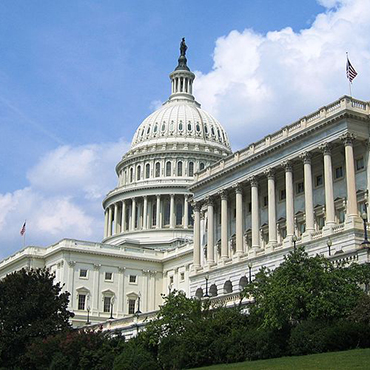Bill would limit reverse auctions

Despite GSA's empbrace of the procurement technique, some lawmakers seek to restrict its use.

Although the General Services Administration eagerly rolled out its own reverse auction platform earlier in July to generate lower prices on commodity goods for federal agencies, newly introduced legislation in Congress is a reminder the acquisition technique has its limitations.
The Commonsense Construction Contracting Act of 2013, introduced on July 19 in by Rep. Richard Hanna (R-N.Y.), would block reverse auctions for some construction contracts.
Hanna, who chairs House Small Business Committee's Subcommittee on Contracting and Workforce, wants to prohibit reverse auctions for construction services in favor of sealed bid or negotiated procurements. His bill would also bar reverse auctions when a construction services contract is suitable for small business, or when the procurement is made using a small business program.
The GSA has generally embraced reverse auctions, and unveiled its own platform a few weeks ago. That site, however, is targeted at commodity services, like common office supplies and IT commodities such as laptops, tablet PCs and monitors.
Hanna contends federal agencies are currently using reverse auctions to award some contracts for construction services, where the government advertises its service needs, and bidders are allowed to offer multiple, consecutively lower bids on a rapid basis, until the lowest price wins. Hanna said the method is best suited to buying well-defined commodities, not skilled services with a high degree of variability like construction and design services.
Testimony during a May Contracting and Workforce Subcommittee hearing, he said, showed reverse auctions for construction contracting resulted in careless bidding, a poor evaluation of businesses and unfair competition for many small construction contractors.
Committee staffers told FCW that Hanna's bill is not aimed at stopping all reverse auctions by federal agencies, but rather limiting use of the practice to areas where it's appropriate. They noted that when reverse-auction champion and former chairman of the House Government Reform Committee Tom Davis (R-Va.) introduced legislation to encourage the use of the auctions, even he exempted construction services.
According to the committee, GSA's reverse auction site indicates the agency considers the schedule for building and building material suitable for reverse auctions. To the extent that GSA is simply looking at supplies, committee aides said the bill would not affect the platform. If the agency intends to reverse-auction construction services, however, the bill would limit its ability to do so.
"Having worked for 30 years in the construction industry, I appreciate the challenges facing small businesses doing construction and related work for the government," said Hanna in a July 19 statement.
"Reverse auctions simply do not make sense for these kind of services, because they fail to guarantee the lowest price, lead to imprudent bidding, and inadequately ensure that the winning bidder is responsive and responsible."
Larry Allen, president of Allen Federal Business Partners, agreed with Hanna that reverse auctions work best when to buy well-defined commodities. Using them to buy more specialized and complex products could lead to big problems for federal agencies. Specialized auctions, he said, are best thought of as "an arrow in a quiver" of a variety of acquisition techniques.
NEXT STORY: Multiprong support comes for strategic sourcing


